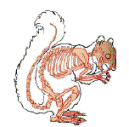
Rachel Ward in After Dark, My Sweet (dir. James Foley, 1990).
Director James Foley has amassed a string of semi-noir thrillers since the eighties that fall into that not-quite-classic, slightly-better-than-B-level category--sort of the Tay Garnett of his era. So far, there's not one film among those of his I've seen (At Close Range, Who's That Girl, Glengarry Glen Ross, The Chamber, The Corruptor, et al.) that completely transcends its generic studio-contract milieu in the way that, say, Garnett's The Postman Always Rings Twice did, but his adaptation of Jim Thompson's After Dark, My Sweet might come the closest.
For one thing, the movie looks great. The richly saturated color and elegant widescreen composition evoke Blue Velvet at times (Foley directed an episode of Twin Peaks the following year). For another, the four leads, Jason Patric, Rachel Ward, Bruce Dern, and George Dickerson (another Blue Velvet connection) are all nicely cast. Dern in particular makes you feel that no one else could have nailed the part of "Uncle Bud" so perfectly.
The film's flaws begin, ironically, with its diligent faithfulness to the novel. At times, it feels like you're watching Masterpiece Theater. The story is too lean and bleak to stand up under such reverent literary treatment. With the exception of two slight changes that I noticed, both having to do with the deaths of supporting characters, you could practically read the book along with the film. Those changes, furthermore, are intelligent ones that enhance cinematic effectiveness: there could have been a few more such changes, and it would have helped the production as a whole to escape from its slavishness to Thompson's text. There are one or two characters who could have been removed entirely, and it might have freed up space for more dynamic plot development. I'm thinking particularly of the "wrong boy" who complicates the kidnapping attempt: because we don't learn of his fate the way we do in the novel, his importance is essentially removed. For that matter, that whole episode is one of the strangest parts of the novel in the first place, and I'm not sure it works even there. I'm also thinking of the doctor (Dickerson) who befriends Collie (Patric). One thing the film does that's interesting is to make the doctor's homosexual interest in Collie more palpable; in Thompson, this is if anything only the faintest subtext. But Foley doesn't really go anywhere with this. It stays at the level of surface coloration, a tentatively interpretive gesture rather than an aggressive reworking of the source material.
And then there's Patric's voiceover. Voiceovers, voiceovers. When will directors learn? Yes, there are times when they work, in some movies. But they have to be movies in which the "textuality effect" thus generated has some relevance. In Thompson's novel, the first-person narration is key to the total logical and emotional impact of the novel, in a very specific way that I won't discuss here so as not to spoil it for those who haven't read it. Foley's transplanting of this device into the film does not follow through with the significance that Thompson attaches to it, and so it serves merely as a cheap expositional shortcut. There are plenty of ways that the information provided by the voiceover could have been supplied via dialogue and action. In fact, there a couple of moments when the voiceover would have helped the viewer understand the character's motivation for key choices he makes, and we don't get it. So it's not even consistently applied.
Still worth seeing, especially directly after reading the book--among other things, as a stimulating object lesson in different ways novelistic material can succeed or fail in the transition to the screen.



No comments:
Post a Comment